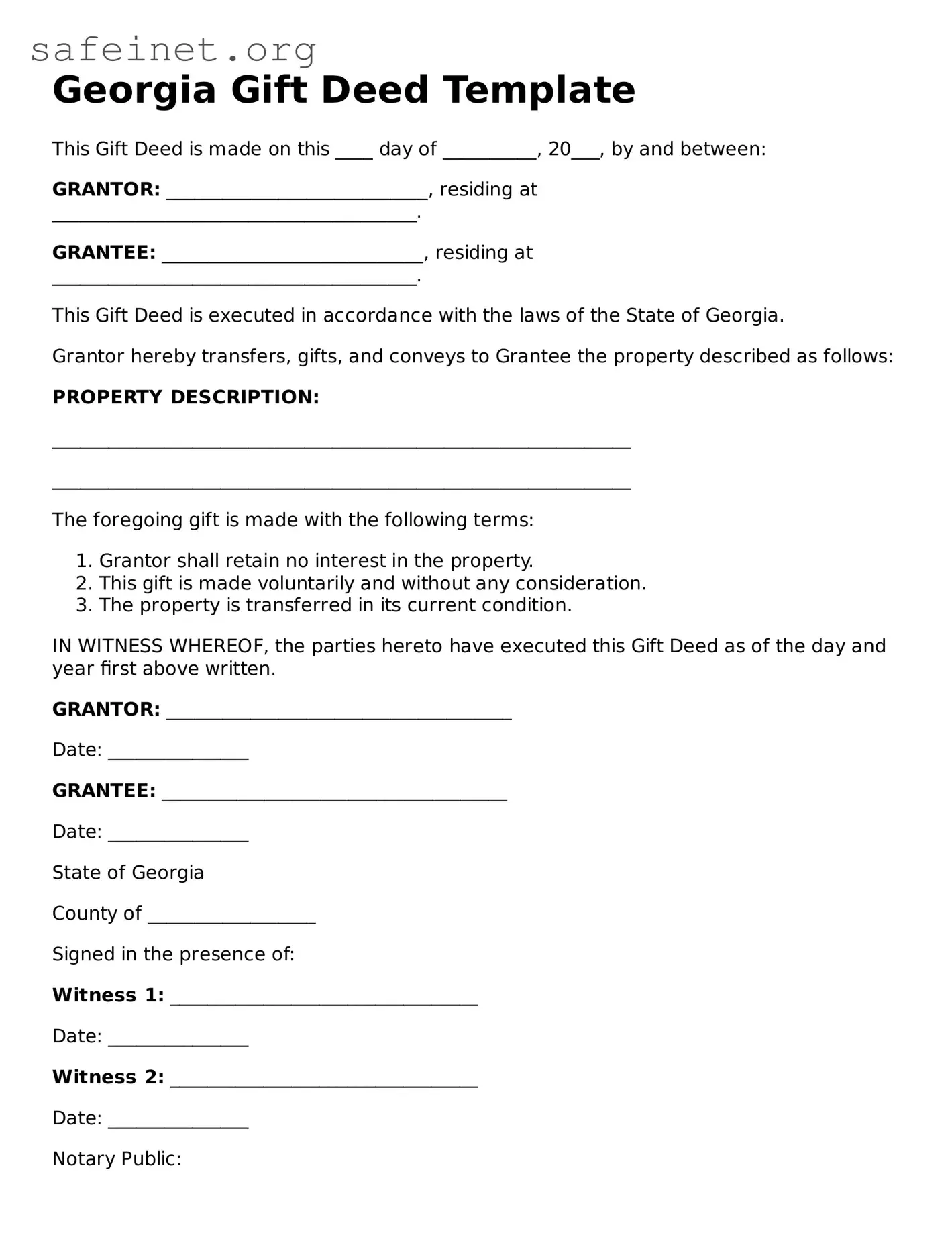Georgia Gift Deed Template
This Gift Deed is made on this ____ day of __________, 20___, by and between:
GRANTOR: ____________________________, residing at _______________________________________.
GRANTEE: ____________________________, residing at _______________________________________.
This Gift Deed is executed in accordance with the laws of the State of Georgia.
Grantor hereby transfers, gifts, and conveys to Grantee the property described as follows:
PROPERTY DESCRIPTION:
______________________________________________________________
______________________________________________________________
The foregoing gift is made with the following terms:
- Grantor shall retain no interest in the property.
- This gift is made voluntarily and without any consideration.
- The property is transferred in its current condition.
IN WITNESS WHEREOF, the parties hereto have executed this Gift Deed as of the day and year first above written.
GRANTOR: _____________________________________
Date: _______________
GRANTEE: _____________________________________
Date: _______________
State of Georgia
County of __________________
Signed in the presence of:
Witness 1: _________________________________
Date: _______________
Witness 2: _________________________________
Date: _______________
Notary Public:
____________________________________
My Commission Expires: ________________
